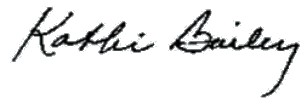 As we continue to celebrate the 20th anniversary of TIRF’s founding, I am thinking of all the steps we have taken and the steps we are about to take. This train of thought is consistent with our slogan for this anniversary year: “Proud of Our Past, Focused on Our Future.”
As we continue to celebrate the 20th anniversary of TIRF’s founding, I am thinking of all the steps we have taken and the steps we are about to take. This train of thought is consistent with our slogan for this anniversary year: “Proud of Our Past, Focused on Our Future.”
In terms of the past, the Doctoral Dissertation Grants (DDGs) have been offered for 17 years; we are currently running our 18th annual DDG competition. In that time, TIRF has supported the research of 130 young scholars from more than 25 countries. Many of their studies have been reported in our six books in the TIRF-Routledge series or in the volume on language assessment edited by MaryAnn Christison and Nick Saville: Advancing the Field of Language Assessment: Papers from TIRF Doctoral Dissertation Grantees (SiLT volume #46).
In focusing on our future, TIRF is now offering some professional services to meet needs in the field and to diversify our revenue stream. I am acutely aware that taking such novel steps involves taking risks, and that some of the initiatives we are undertaking may be seen as risky. Risk-taking is defined as “a situation where an individual has to make a decision involving choice between alternatives of different desirability; the outcome of the choice is uncertain; there is a possibility of failure” (Beebe, 1983, p, 39.). Let’s look at some examples of risks people have taken for TIRF.
Twenty years ago, the TESOL Board of Directors took an important step (and something of a risk) by voting the Foundation into existence in June of 1998. That step included committing seed money to get the Foundation started. I am pleased to note that the Foundation’s bylaws stipulate that if TIRF were to disband for any reason, the first step in distributing the Foundation’s assets would be to reimburse TESOL.
Second, everyone who has ever served as a Trustee of the Foundation risks time, energy, and financial resources. TIRF does have Officers and Directors Insurance, which would protect the Trustees if the Foundation were ever to face an unexpected legal situation. Still all the Trustees make huge commitments to give their time and financial resources to further TIRF’s mission.
People who submit proposals to TIRF for grant funding also take risks. They invest considerable time and effort in developing their proposals according to TIRF’s rigorous guidelines. They must also get their research supervisors to write letters of support, which is at least a commitment of time. These efforts may or may not pay off, depending on whether a particular applicant’s proposal is selected for funding.
Finally, donors take a risk in committing funding to TIRF. They trust that the Foundation will use their support wisely. Those supporters who have been faithful donors for many years have seen TIRF’s programs and reputation grow.
Indeed, we are proud of our past and focused on our future. Let me ask you to help us secure that future. Won’t you take the risk of becoming a TIRF donor?? I assure you that Ryan and I and all the Trustees work diligently to make good use of any and all contributions. Thank you so much for considering this request.
And, of course, if you’ll be in Atlanta during the TESOL Convention, we hope to see you at the TIRF presentation there. You can find further information about our session in the February edition of TIRF Today.
Best wishes,

Reference
Beebe, L. M. (1983). Risk-taking and the language learner. In H. W. Seliger & M. H. Long (Eds.), Classroom oriented research in second language acquisition (pp. 39-66). Rowley, MA: Newbury House Publishers.

